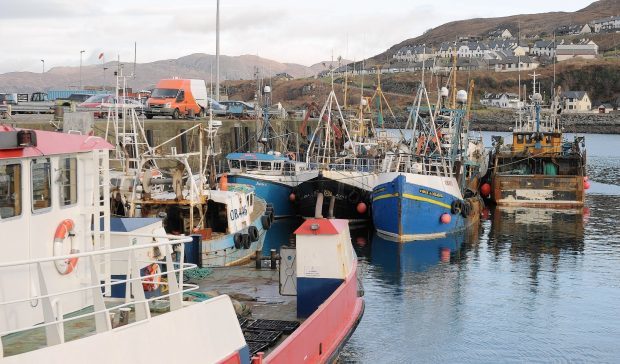A new report into the health of EU fish stocks has been hailed as proof that decades of industry self-sacrifice have restored fisheries to “greatness”..
The European Scientific, Technical and Economic Committee for Fisheries (STECF), which is the European Commission’s scientific body tasked with the job of delivering advice and supporting the implementation of the Common Fisheries Policy (CFP), highlighted some continuing North-east Atlantic over-fishing in its recent annual report on CFP performance.
But overall the stocks were in “significantly” better health than before, it said.
“On average, the stock biomass (the total weight of all sexually mature fish in the stock) is increasing and stock status is improving,” the report added.
Stocks in the Mediterranean Sea and Black Sea remained “in a very poor situation”, STECF said.
European fishing industry body Europeche, representing organisations including the Scottish White Fish Producers’ Association, said the progress followed years of severe cuts to quotas and days-at-sea.
It added: “Decades of self-sacrifice is returning our fisheries to greatness, since the report clearly shows that stocks status is significantly improving.
“It also reflects an overall downward trend in the fishing pressure, however, additional efforts are still needed, particularly in the Mediterranean.”
According to STECF, the proportion of overexploited stocks among nearly 70 studied fell to about 40% from more than 70% between 2003 and 2015.
The proportion of assessed stocks deemed to be below safe biological limits followed the same decreasing trend, from 65% in 2003 to 38% in 2015.
Europeche president Javier Garat said: “Many stocks in Europe have recovered and are currently delivering sustainable catches.
“This is not a coincidence or a fortunate accident; it came at the expense of the many efforts made by the fishing industry, which respected stringent TACs (total allowable catches) and suffered a strong reduction of fleets.
“We welcome that these sacrifices are paying off and resulting in higher catches, better economic performance and reduction of fuel consumption.
“We are not complacent though; the fishing sector looks forward to continuing its close collaboration with scientists, governments and the European Commission to increase the number of fish stocks at sustainable levels, improve knowledge on data deficient stocks, minimise any possible impact on the environment and operate within the limits set in the CFP.”
Scottish Fishermen’s Federation chief executive Bertie Armstrong said: “The enormous sacrifices made by people across the coastal communities in Scotland to ensure a future for the industry are well-documented, from decommissioning to the adoption of pioneering methods of sustainable fishing.
“But the straitjacket of the CFP has crippled many of those communities needlessly, and with Brexit we look forward to being free to manage our own fish stocks in a sustainable manner and to an end to the absurd rules which force us to give away almost two-thirds of those stocks.”
